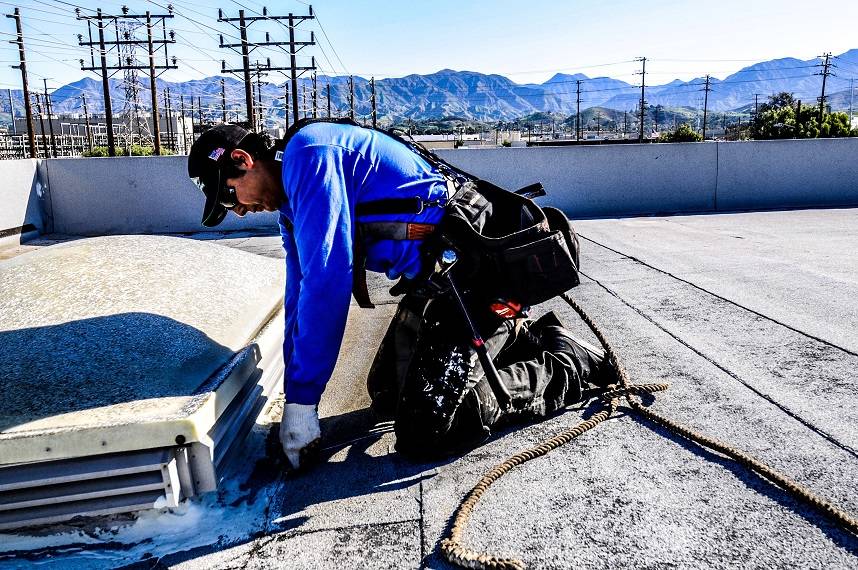Schedule Free Estimate
5 Things You Wish You Knew Before Installing Solar On Your Roof
As you may have heard installing solar panels on your roof is a thing right now. But it is also a smart way to save money and help the environment, but it can also be a complicated process. There are many things to consider before making the investment, including the type of panels, the cost, and the installation process. To help make the transition as smooth as possible, here are 5 things you should know before installing solar on your roof.
1. Roof Condition:
Before you install solar on your roof, knowing the condition of your roof is crucial to installing solar. It can help ensure that your roof is in good condition and capable of supporting the weight of the solar panels.
2. Roof Orientation and Angle:
Whether or not your roof is facing the Sun can play a huge role in the efficiency of your solar panels. Not only the angle but also you have to consider the shading from the surrounding trees, buildings, and other obstacles that could also reduce the amount of sunlight your panels receive.
Lastly, Ensure that you have enough roof space to accommodate the size of the solar panel system you want to install.
[optin-monster slug=”vyo67u2a2yd7ynnjfktz” followrules=”true”]
3. Cleaning Your Solar Panels:
Often neglected Solar Panels do require cleaning in order to not lose efficiency. Dirt, dust, and grime can accumulate on solar panels over time, reducing their ability to absorb sunlight and generate electricity. Cleaning your panels on a regular basis can improve their efficiency by up to 20%. There are a few ways that you can clean your solar panels which you can find them here.
4. Tax Incentives:
Knowing the tax incentives before installing solar panels can significantly reduce the cost of the installation and increase the financial benefits of switching to solar energy. Some of the most common tax incentives for solar panels include:
Federal Tax Credit: The federal government offers a tax credit for 30% of the cost of installing solar panels, which can be claimed on your federal tax return.
State Rebates: Some states offer rebates for the installation of solar panels, which can be a significant source of additional funding.
Property Tax Exemptions: In some cases, property tax exemptions may be available for solar panel installations, which can lower your property tax bill and increase the overall financial benefits of switching to solar.
By understanding the tax incentives available in your area, you can help make a more informed decision about whether solar is right for you and estimate the financial benefits more accurately. Additionally, knowing the tax incentives can help you take advantage of them and maximize your return on investment.
5. Building Codes and Permits:
Knowing the building codes and permits required before installing solar panels on your roof is important because it helps ensure that the installation is done safely and in compliance with local regulations. Some of the reasons why it’s good to know the building codes and permits include:
- Legal Compliance: Building codes and permits ensure that the installation meets local safety and zoning requirements. Installing solar panels without the proper permits can result in fines or legal penalties.
- Protection of Property and People: Building codes and permits ensure that the installation is done safely and won’t pose a risk to your property or the people around it.
- Guaranteed Quality: By following building codes and obtaining the necessary permits, you can be sure that the installation will be done to a high standard and that the panels will perform as expected.
- Future Sales and Resale Value: Having the proper permits and building codes can also be beneficial if you plan to sell your property in the future, as it demonstrates that the installation was done properly and in compliance with local regulations.
In short, obtaining the necessary building codes and permits is a crucial step in the process of installing solar panels and helps ensure that the installation is done safely, legally, and to a high standard.
Conclusion
In conclusion, installing solar panels on your roof can be a great investment for your home or business, but it’s important to consider several factors before making the switch. By understanding the benefits and drawbacks of solar energy, the tax incentives available, the building codes and permits required, and the importance of cleaning your panels, you can make an informed decision and enjoy the many benefits of solar energy for years to come. Taking the time to educate yourself about the process can help ensure a smooth and successful transition to solar energy.
[simple-author-box]
Central Roofing Company Headquarters
555 W. 182nd Street
Gardena, CA 90248
310-527-6770

Get A Quote
One of our roofing estimators will gladly meet you to discuss your options and follow up with a free, no-obligation, written estimate.
At Central Roofing Company, we understand that a sturdy and reliable roof is crucial for the success and safety of your commercial property. Our team of highly skilled and trained roofing professionals is committed to delivering exceptional craftsmanship and superior service in every project we undertake.
555 W. 182nd St. Gardena, CA 90248
Ph: 310-527-6770
Our Office Locations:
Our Services
CA license #684960 – Central Roofing, 2024 ©All Rights Reserved | Terms of Use | Privacy Policy | Built by Dymic